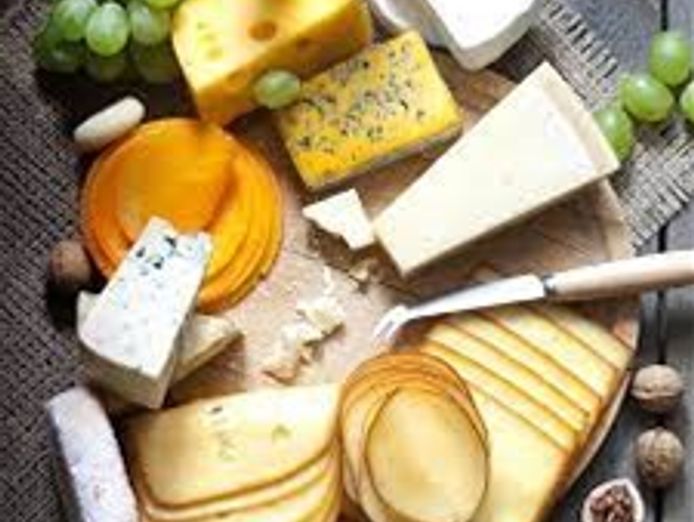Find Your Fave Cheese at a Cheese Store Melbourne
Find Your Fave Cheese at a Cheese Store Melbourne
Blog Article
A Comprehensive Take A Look At Cheese Production: Components, Approaches, and the Future of Craftsmen Cheeses
The intricate process of cheese production is a fascinating merging of art and science, where premium milk, rennet, and details bacterial cultures offer as fundamental components. As the market significantly focuses on sustainability and transparency, the future of artisan cheeses promises to show both heritage and development.
Trick Active Ingredients in Cheese Manufacturing
A variety of crucial ingredients play a critical duty in cheese production, each adding to the final item's taste, structure, and character. The main component in cheese is milk, which can originate from numerous resources, consisting of cows, goats, and lamb - cheese store melbourne. The sort of milk used substantially affects celebrity's preference and consistency; as an example, cow's milk commonly produces creamier cheeses, while goat's milk often generates appetizing selections
An additional important component is rennet, an enzyme used to curdle the milk, separating it into curds and whey. The source of rennet can be animal, veggie, or microbial, each giving distinctive features to the cheese.
Salt not only enhances the flavor but likewise works as a chemical, inhibiting the growth of unwanted microorganisms. Additionally, different flavor agents, such as herbs, spices, or also smoked timber, can be included in develop special artisanal cheeses. Together, these components create the foundation of cheese production, setting the phase for diverse and abundant cheese selections.
Traditional Cheese-Making Techniques
Utilizing standard cheese-making strategies, artisans all over the world maintain classic approaches that have actually been given via generations. These techniques commonly stress using top notch, locally sourced milk, which is central to the unique tastes and textures of artisanal cheeses. The procedure commonly begins with the careful home heating of milk, adhered to by the addition of societies and rennet to assist in coagulation.
Once the curds form, they are reduced, enabling whey to drain pipes, an important action that influences moisture web content and texture. Salting is a vital aspect of this procedure, boosting taste while likewise acting as a preservative.
Aging, or affinage, is another vital part, throughout which cheeses create their particular scents and preferences. Artisans may use certain maturing settings, making use of humidity and temperature level controls to improve the cheese's profile. The commitment to these standard techniques not only supports regional economic climates but also contributes to the abundant diversity of cheese selections discovered worldwide, celebrating cultural heritage and artisanal workmanship.
Modern Technologies in Cheese Manufacturing
Exactly how have technological innovations transformed cheese production in the last few years? The assimilation of modern-day technology has actually changed both the performance and quality of cheese manufacturing. Automation in various stages of the process-- from curd formation to packaging-- has actually boosted consistency visit our website while minimizing labor prices. For instance, automated curd reducing and stirring systems enable accurate control over appearance and dampness levels, critical aspects affecting the final item.
In addition, advancements in microbiology have actually enabled cheesemakers to choose specific bacterial societies and enzymes, that site enhancing flavor accounts and enhancing service life. Making use of sensing unit technology for keeping an eye on fermentation conditions has actually likewise come to be common, permitting real-time changes to keep optimal atmospheres for cheese aging.

These developments not only improve the top quality and sustainability of cheese manufacturing but likewise equip artisan manufacturers to keep conventional flavors while welcoming modern-day effectiveness. As innovation proceeds to progress, the future of cheese production looks encouraging, blending practice with advancement.
The Role of Terroir in Cheese
In the world of cheese production, terroir plays a critical role in specifying the distinct attributes of different cheeses. Terroir, a French term generally connected with blog white wine, incorporates the ecological variables that influence farming products, consisting of dirt composition, environment, and neighborhood plants and fauna. In cheese-making, the one-of-a-kind characteristics of the region where the milk is sourced can impart particular tastes and appearances to the end product.
For instance, the grazing conditions of dairy products pets significantly impact the milk's make-up, affected by the sorts of lawns and natural herbs offered in a particular area. This varies not only between countries but also between regions within the same nation. Additionally, the microbial areas existing in the atmosphere add to the fermentation procedures, resulting in varied accounts in taste and scent.
Cheeses such as Roquefort, Parmigiano-Reggiano, and Cheddar exemplify how terroir can form their identifications, making them unique and frequently safeguarded by geographical signs. As producers significantly acknowledge the value of terroir, there is an expanding emphasis on sourcing local active ingredients and maintaining typical practices, ensuring that each cheese genuinely reflects its origin.

Future Trends in Craftsmen Cheeses
A noteworthy shift is occurring in the artisan cheese field, driven by progressing customer preferences and technical innovations. Significantly, customers are inclining special, top notch items that emphasize both sustainability and local sourcing - cheese factory melbourne. This trend is prompting artisan cheesemakers to introduce, concentrating on small-batch production and using conventional techniques while integrating modern technology to boost high quality and safety
In addition, there is a growing interest in plant-based and alternate milk products, pressing traditional cheesemakers to discover brand-new opportunities, such as cashew or almond-based cheeses. This shift not only satisfies dietary restrictions however likewise straightens with ecological worries pertaining to animal agriculture.
Furthermore, transparency in sourcing and manufacturing processes is coming to be critical. Customers are more educated and demand traceability, prompting producers to take on more clear labeling practices and take part in storytelling that highlights their techniques and values.
Verdict
In final thought, the elaborate process of cheese manufacturing combines standard methods with modern developments, causing a varied selection of tastes and appearances. The emphasis on top quality active ingredients and the influence of terroir emphasize the virtuosity associated with cheese production. As the industry progresses, a focus on sustainability and transparency will likely form the future of artisan cheeses, satisfying a significantly critical consumer base that values authenticity and workmanship in dairy products.
Report this page